« Return to all search results
Title Search Results
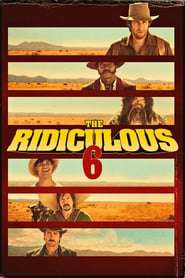
When his long-lost outlaw father returns, Tommy "White Knife" Stockburn goes on an adventure-filled journey across the Old West with his five brothers.
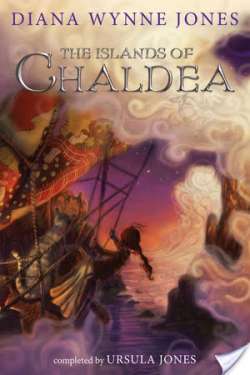
A stand-alone novel of magic and adventure by the renowned fantasy author Diana Wynne Jones, who also wrote Howl's Moving Castle and the Chrestomanci books. Almost finished upon her death in 2011, the manuscript was completed by Diana's sister Ursula Jones, an acclaimed novelist and actress. Publishers Weekly called The Islands of Chaldea "a story to cherish" in their starred review. Aileen comes from a long line of magic makers, and her aunt Beck is the most powerful magician on Skarr. But Aileen's magic has yet to reveal itself, even though she is old enough and it should have by now. When Aileen is sent over the sea on a mission for the King, she worries that she'll be useless and in the way. A powerful talking cat changes all of that—and with every obstacle Aileen faces, she becomes stronger and more confident, until her magic blooms. This stand-alone novel, by the beloved and acclaimed author of such classic fantasy novels as Howl's Moving Castle and the Chrestomanci books, will be welcomed by fans old and new. "Jones's imaginative vigor is unabated in this last, picaresque novel; her deft, fluid style and penchant for precise, characterful description are amply present," proclaimed The Horn Book.
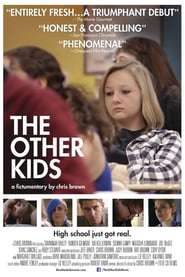
Director Chris Brown creates a hybrid of fiction and non-fiction in which he collaborates with real high school seniors to tell their personal stories. The result is a portrait of six teens on the threshold of adulthood and how each is dealing with his or her impending future
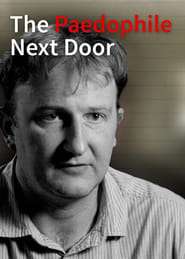
Historian Steve Humphries examines failures in policies and legislation put in place to protect youngsters from sexual abuse, and discovers radical new solutions proposed by an increasing number of child-protection experts, which challenge deep-rooted attitudes and emotional reactions to paedophiles. Senior lecturer Sarah Goode believes the most promising way to reduce the number of child-abuse cases is to encourage people to seek treatment before they target victims. Her theory is supported by an interview in this programme in which Humphries meets a man who makes an extraordinary confession on camera.
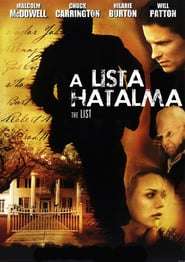
A sudden death tied to a list from the past leads to unimaginable evil. Fresh out of law school and full of hope for the future, Renny Jacobson is stunned by his father's sudden death--and then by the terms of the will: the elder Jacobson has left the bulk of his estate to charity.
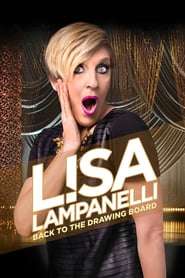
Brash, bold and never afraid to go blue, comedian Lisa Lampanelli offers a raucous and raunchy performance in her first stand-up special for EPIX. Taped at the Music Hall in Tarrytown, New York, the set includes Lampanelli's signature brand of insult comedy as well as her personal experiences with weight loss and divorce.
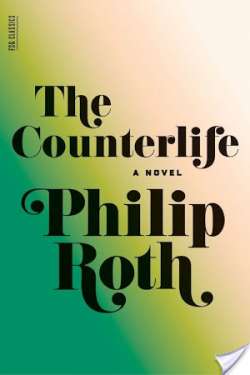
The Counterlife is a novel unlike any that Philip Roth has written before, a book of astonishing 180-degree turns, a book of conflicting perspectives and points of view, and, by far, Roth's most radical work of fiction. The Counterlife is about people enacting their dreams of renewal and escape, some of them going so far as to risk their lives to alter seemingly irreversible destinies. Every major character (and most of the minor ones) is investigating, debating, and arguing the possibility of remaking the future. Illuminating these lives in transition and guiding us through all the landscapes, familiar and foreign, where these people are seeking self-transformation, is the mind of the novelist Nathan Zuckerman. His is the skeptical, enveloping intelligence that calculates the price that's paid in the struggle to change personal fortune and to reshape history. Yet his is hardly the only voice. This is a novel in which speaking out with force and lucidity appears to be the imperative of every life. There is Henry, the forty-year-old New Jersey dentist, who risks a quintuple bypass operation in order to escape the coronary medication that renders him sexually impotent. There is Maria, the wellborn young Englishwoman, who invites the disdain of her family by marrying the American she knows will be lease acceptable in Gloucestershire. There is Lippmann, the Israeli settlement leader, who contends that "everything is possible for the Jew if only he does not give ground." The action in The Counterlife ranges from a dentist's office in quiet suburban New Jersey to a genteel dining table in a tradition-bound English village, from a Christmas carol service in London's West End to a Sabbath evening celebration in a tiny desert settlement in Israel's occupied West Bank. Wherever they may find themselves, the characters of The Counterlife are tempted unceasingly by the prospect of an alternative existence that can reverse their fate. The Counterlife was a finalist for the National Book Award and winner of the National Book Critics Circle Award.
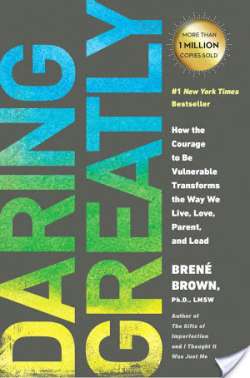
Previously published as a Gotham Books hardcover.
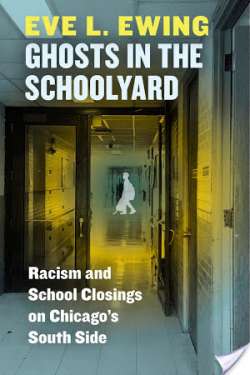
"Failing schools. Underprivileged schools. Just plain bad schools." That's how Eve L. Ewing opens Ghosts in the Schoolyard: describing Chicago Public Schools from the outside. The way politicians and pundits and parents of kids who attend other schools talk about them, with a mix of pity and contempt. But Ewing knows Chicago Public Schools from the inside: as a student, then a teacher, and now a scholar who studies them. And that perspective has shown her that public schools are not buildings full of failures--they're an integral part of their neighborhoods, at the heart of their communities, storehouses of history and memory that bring people together. Never was that role more apparent than in 2013 when Mayor Rahm Emanuel announced an unprecedented wave of school closings. Pitched simultaneously as a solution to a budget problem, a response to declining enrollments, and a chance to purge bad schools that were dragging down the whole system, the plan was met with a roar of protest from parents, students, and teachers. But if these schools were so bad, why did people care so much about keeping them open, to the point that some would even go on a hunger strike? Ewing's answer begins with a story of systemic racism, inequality, bad faith, and distrust that stretches deep into Chicago history. Rooting her exploration in the historic African American neighborhood of Bronzeville, Ewing reveals that this issue is about much more than just schools. Black communities see the closing of their schools--schools that are certainly less than perfect but that are theirs--as one more in a long line of racist policies. The fight to keep them open is yet another front in the ongoing struggle of black people in America to build successful lives and achieve true self-determination.
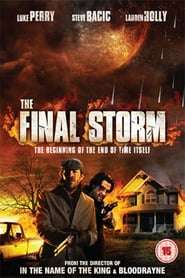
A stranger named Silas flees from a devastating storm and finds refuge with Tom and Gillian on their farm. While struggling with the Storm, Silas seems to be the only one who can help Tom and Gillian to find their son but there are other more dangerous forces out there, that are waiting for the three.
